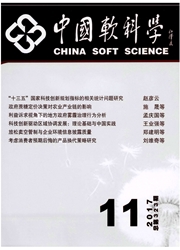

 中文摘要:
中文摘要:
本文运用我国西部地区11省(市、区)1664户农户的调研数据,通过建立需求可识别的双变量probit模型,比较研究了农户特征及农户社会资本对其正规信贷和非正规信贷供需倾向的影响。研究发现:无论是正规金融机构、还是非正规金融机构都倾向于向具有良好社会资本的农户提供信贷;但社会资本的不同层次对农户信贷行为有着不同的影响,其中正规金融机构倾向于向拥有良好政治关系资本和金融关系资本的农户提供信贷,非正规金融组织则更看重农户的人际关系资本;收入高且人际关系资本优越的农户在融资时倾向于正规信贷;而年龄高、具有一定政治关系资本的农户更倾向于非正规信贷。据此,本文提出在现有的农村金融运行环境下,通过农户社会资本积累提升农户从金融机构获得贷款的能力才是解决农户融资难问题的现实可行途径;并提出了增加农户社会资本积累的具体路径。
 英文摘要:
英文摘要:
Based on the survey data of 1664 peasant households from 11 west provinces,this paper build a bivariate probit model to analyze the influence of peasant households’ characteristics and social capital on the supply and demand tendency of formal and informal credit. The empirical results show that both formal and informal financial institutions turn to provide loans to peasant households with favorable social capital. However,different levels of social capital have different impacts on peasant households’ credit behavior. Formal financial institutions place more weight on political capital and financial capital,while informal institutions place more weight on interpersonal capital. Peasant households with high income and favorable interpersonal capital prefer formal credit,while elder peasants with rich political capital prefer informal credit. Rising social capital is an effective approach to solving credit crunch under the existing rural financial environment. Besides,the specific methods are given.
 同期刊论文项目
同期刊论文项目
 同项目期刊论文
同项目期刊论文
 期刊信息
期刊信息
